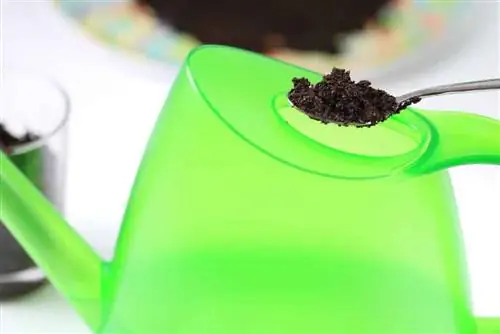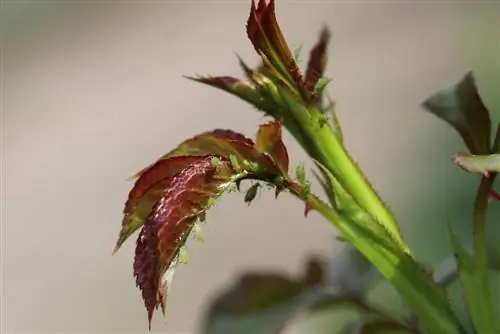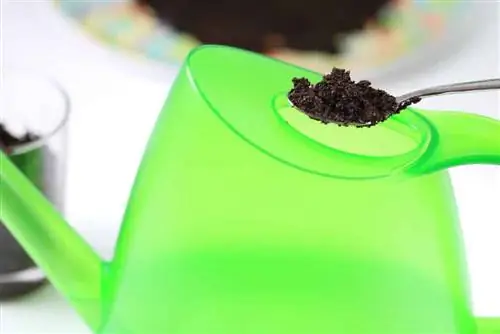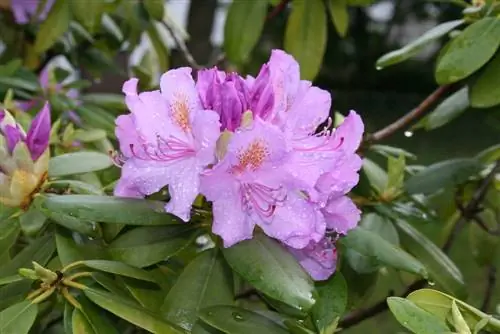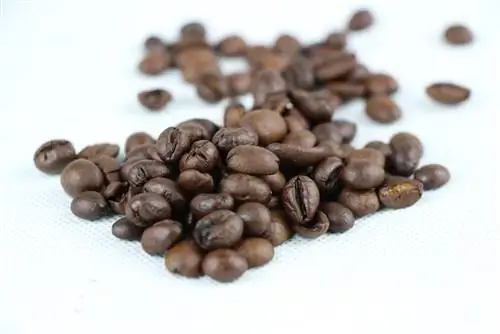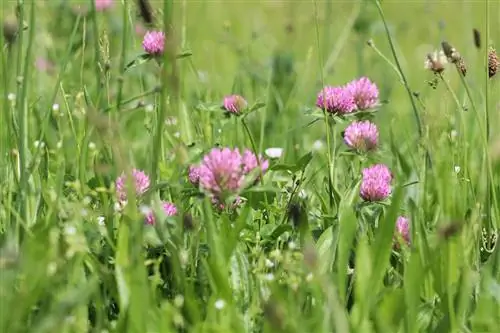- Author admin caroline@plants-knowledge.com.
- Public 2023-12-17 03:39.
- Last modified 2025-01-24 12:45.
The grandparents already knew that coffee grounds don't belong in the trash, but in the bed. The free waste product contains valuable plant nutrients such as nitrogen, potassium, sulfur and phosphorus. So why should you buy expensive fertilizer? But be careful, not all plants tolerate it. We present 8 vegetable and ornamental plants for which you should avoid this addition.
Coffee grounds
Coffee is the Germans' favorite drink, which is why most households produce coffee grounds every day. Its ingredients, nitrogen, potassium, sulfur and phosphorus, are similar to the composition of commercial fertilizers.
Nitrogen
promotes plant growth
Phosphorus
- Building block of cell walls
- Phosphorus deficiency slows down plant growth
- discolored and shriveled leaves indicate phosphorus deficiency
Potassium
- required for all processes that transport water
- Prerequisite for osmotic processes
- regulates the opening and closing of the stomata
- involved in all metabolic processes of the plant
Sulfur
- necessary for protein buildup
- promotes metabolic processes
- Sulfur deficiency slows down plant growth
These ingredients have a positive effect on almost all plants. Overdoses are hardly possible.
Caution: coffee grounds are acidic
Coffee seems slightly sour. This can lower the pH of the soil. This property determines whether fertilization with coffee grounds is recommended. Hydrangeas, rhododendrons, dogwoods, magnolias, blueberries and cranberries are among the acid-loving ericaceous plants and benefit from the addition. Work the dry coffee residue into the ground regularly. The situation is completely different for plants that prefer alkaline, calcareous soils. They cannot tolerate coffee grounds fertilization.
The pH value
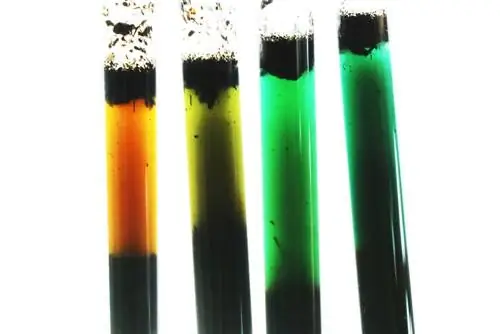
The garden soil can react alkaline or acidic. The pH value provides information about this. The classification is based on an internationally valid scale, in which the pH value 7 indicates the neutral point. Most plants like slightly acidic soil.
Soils are divided according to pH value into
- acidic (calcareous): PH value 4.6 to 5.5
- slightly acidic: pH value 5.5 to 5.9
- slightly acidic to neutral: pH value 6.0 to 7.0
- neutral to slightly alkaline: pH value 7.1 to 7.5
- slightly alkaline: pH value 7.5 to 8.0
- alkaline: pH value above 8, 1
Coffee grounds fertilization for intolerant ornamental plants
Aster (Aster)
Asters are among the favorite plants of hobby gardeners. No wonder, after all, if they are cared for well, they bloom in many bright colors and transform the garden into a sea of flowers. More than 180 species are known.
- Location sunny to partially shaded
- calcareous, permeable soil
- pH value of the soil slightly alkaline
- suitable for rock gardens
Blue Pillow (Aubrieta)
Blue cushions are popular as ground cover in the garden. They are ideal for bordering beds or as a bright splash of color. Blue cushions are undemanding. They grow on dry stone walls and are perfect for the rock garden.
- Sunny location
- sandy, calcareous, permeable soil
- pH value of the soil slightly alkaline
- undemanding
- hardy
Lavender (Lavandula)
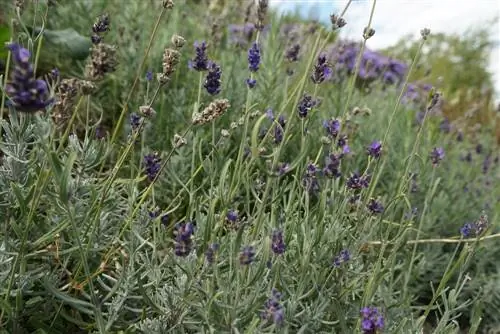
The popular fragrant and medicinal plant prefers barren, calcareous soils. Even stony ground doesn't affect the purple lavender. It does not tolerate wet feet or even acidic, peaty soil. Therefore, fertilizing coffee grounds is not recommended.
- Sunny location, sheltered from the wind
- sandy, gravelly soil
- pH value of the soil slightly alkaline
- Avoid waterlogging
- lime additive recommended in autumn
- suitable for pot planting
Yarrow (Achillea)
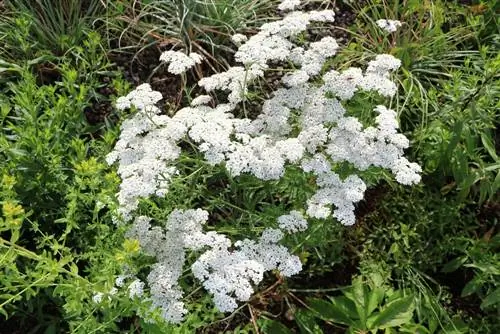
If you only know yarrow as a wild plant, you should visit a perennial nursery. You will be surprised by the variety of varieties. You get the beautiful plant in different sizes and colors from white to yellow and orange to a deep dark red. All varieties do not tolerate coffee grounds fertilization.
- Sunny location
- calcareous, permeable soil
- pH value of the soil slightly alkaline
- undemanding
- Bee Pasture
African Lily (Agapanthus)
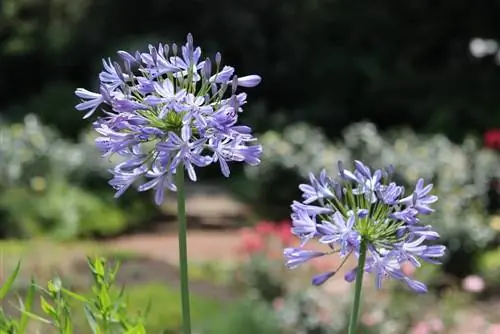
The blue and white African lilies are among the most popular potted plants. The ornamental plants also delight outdoors with their magnificent flowers that are reminiscent of ornamental onions.
- Location warm, sunny, sheltered from the wind
- calcareous, permeable soil
- pH value of the soil slightly alkaline
- suitable as a pot plant
- not hardy
Spurweed (Euphorbia)
Spurge plants are perfect for sandy, dry soils. The easy-care perennials thrive in rock gardens and are suitable for green roofs. They work individually and can be easily combined with other lime-loving ornamental plants.
- Location sunny, dry, warm
- sandy soil
- pH value of the soil slightly alkaline
- easy care
- Plant juice can cause skin irritation
Coffee grounds fertilizer for intolerant vegetables
Leek (Allium porrum)
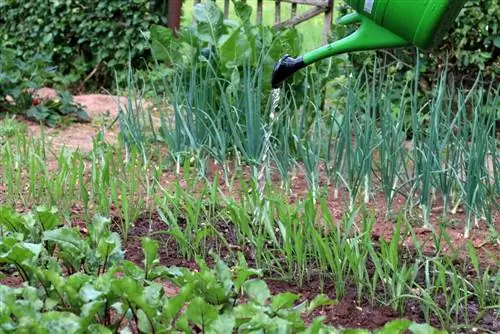
7.0 to 8.0 is the pH value of the soil so that leeks can thrive optimally. Leek is he althy and an important source of vitamins in winter.
- Sunny location
- nutrient-rich, deep soil
- Avoid waterlogging
By the way:
Did you know that leeks are one of Wales' national symbols? Its meaning is comparable to the English rose.
Asparagus (Asparagus officinalis)
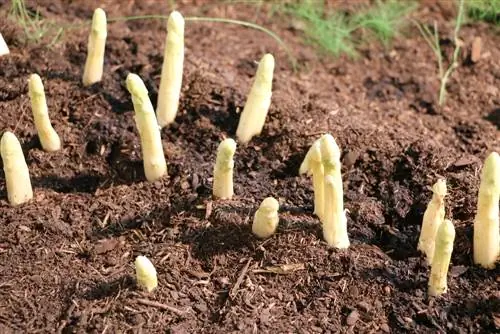
While many vegetables prefer acidic soil, asparagus loves loamy, sandy locations. The pH of the soil should be at least 6.0 for a successful harvest. A warm, sunny place is important for the development of royal vegetables.
- Location sunny, warm
- humus-rich, sandy soil
- Avoid waterlogging
- low groundwater level
- Green asparagus is a little less demanding than white asparagus
Coffee grounds alternatives
For everyone who relies on organic fertilization in the garden, we present effective alternatives to coffee grounds fertilization.
Horn shavings
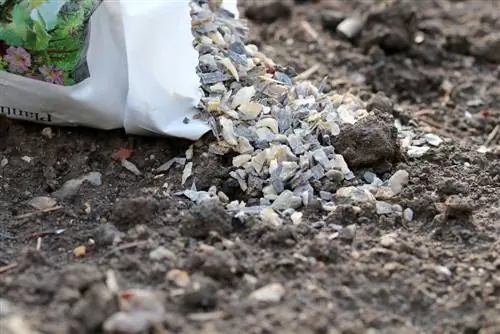
Horn shavings are obtained from the horns and hooves of cattle. They are rich in nitrogen and contain some potassium. Horn shavings have a pH-neutral effect and can be used in the garden without hesitation. Horn shavings are not suitable for fertilizing house and container plants. In order to develop their effect, they need the microorganisms in the soil. Their proportion in houseplant soil is too low. Horn shavings are available in specialist retailers in various grain sizes.
Banana peels
Banana peels, like coffee grounds, are free. They contain potassium, calcium, magnesium and some nitrogen and sulfur. Before use, the banana peels should be crushed as they decompose slowly. The high potassium content stimulates flowering perennials. Attention: Only use organically grown banana peels to fertilize your plants. In conventional cultivation, bananas are treated with fungicides, among other things, which have a preservative effect and prevent the peel from decomposing. Banana peels can be dried hanging and used as needed.
Eggshells
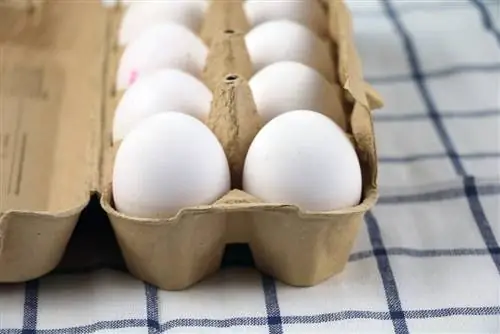
The high calcium content makes eggshells a perfect fertilizer for all plants that like calcareous soils. All plants that cannot tolerate the acidic effects of coffee grounds benefit from the addition of eggshells. In addition to calcium, these also contain fluorine, phosphorus, sulfur, zinc, manganese, iron and copper. Preparing eggshell fertilizer is easy. Crush the shells of 2 to 3 eggs. Add 1.5 liters of water. Let the mixture stand overnight, pour it through a sieve the next morning and the eggshell fertilizer is ready.

